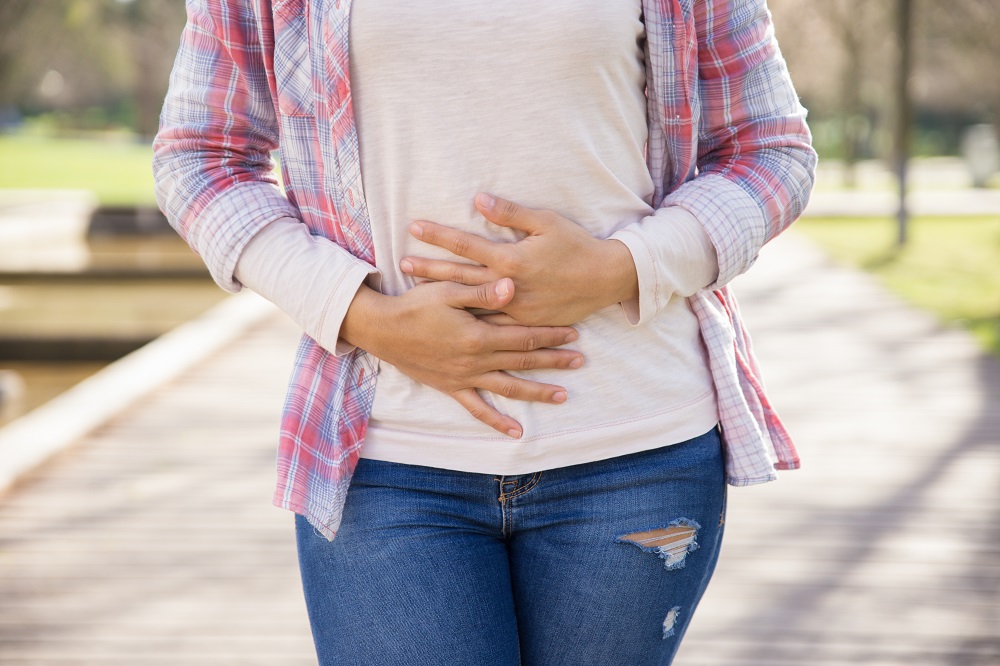Share

STOMACHACHE AND STOMACH UPSET
By Victoria Healthcare 11 April 2019

What happens when you have a stomach ache? — Sometimes that's the only symptom you have. You can have several different types of ache, too. We say “stomache ache”, but really we mean “belly ache”: pain anywhere in your abdomen.
With your belly ache, you can have other symptoms such as:
- Burning in your chest known as heartburn
- Burping
- Bloating (feeling as though your belly is filled with air)
- Feeling full too quickly when you start eating
Sharp painthat comes and goes or steady pain
Symptoms in the rest of your body like fever, fatigue, general aches and pains
Nausea or vomiting
Changes in your bowel movements
Should I see a doctor or nurse about my stomach ache? — Most people do not need to see a doctor or nurse for a stomach ache. But you should see your doctor or nurse if:
- You have bloody bowel movements, severe diarrhea, or vomiting
- Your pain is severe and lasts more than an hour or comes and goes for more than 24 hours
- You cannot eat or drink for over 12hours
- You have a fever higher than39°C
- You lose a lot of weight without trying to, or lose interest in food
What causes stomach aches? — In some cases, stomach aches are caused by a specific problem, such as a stomach ulcer (a sore on the inside of the stomach) or a condition called "diverticulitis," in which small pouches in your large intestine get infected.
Several “functional” disorders can cause stomach pain, such as irritable bowel syndrome, small intestinal bacterial overgrowth syndrome, SIBO). Food allergies, celiac disease, etc. can produce similar symptoms.
Many doctors now believe that our diet and bacteria in our intestine (microbiome) are responsible for ma my conditions through increasing th body’s inflammation and thus attacking itself to some degree.
SIBO occurs when “bad” bacteria advance too far up the small intestine. There, they feed on carbohydrates and produce gas, spasm in the bowel, and bloating. “Leaky gut” is similar, in that bacterial products then leak into your circulation, producing fatigue, pain, even arthritis, and other immune reactions to the increased inflammation.
Fortunately, these conditions can be treated with probiotics: medication containing ”good” bacteria and sometimes with specific antibiotics. In these case, a proper diet is essential for cure. This diet “starves” the bad bacteria because it is very low in carbohydrates and processed foods (containing trans-fats). The FODMAP diet). This diet consists of veggies, very limited fruit because of the carbs, and protein (but not processed meats).
Doctors and nurses can usually find a cause and treat the stomach ache.It is up to the judgment of your doctor as to whether you need further testing, such as lab work, ultrasound, special testing, or CT/MRI scan.
What treatments help with stomach symptoms? — If your symptoms are caused by a specific problem, such as an ulcer, treatments for that problem will likely relieve your symptoms after a few days.
But if it is unclear what is causing your pain, he or she might recommend medicines that reduce the amount of acid in your stomach. These medicines often relieve stomach ache and the symptoms that come with it.
Can I do anything on my own to prevent stomach ache? — Yes, the foods you eat and the way you eat them can have a big effect on whether or not you feel pain.
To lower your chances of getting a stomach ache:
- Avoid fatty foods, such as red meat, butter, fried foods, and cheese
- Eat several small meals each day, rather than two or three big meals
- Stay away from foods that seem to make your symptoms worse
- Avoid taking over-the-counter medicines that seem to make your symptoms worse – Examples include aspirin or ibuprofen (sample brand names: Advil, Motrin)
Chew your food well and eat slowly.
Be moderate or stop drinking alcoholic beverages
Consider whether to stop drinking carbonated beverages
Some people – especially kids – sometimes get a stomach ache after drinking milk or eating cheese, ice cream, or other dairy products. They may have a problem called "lactose intolerance," which means that they cannot fully break down the special sugar in dairy products. Some people are also allergic to milk fat or casein, the protein in milk.
People with lactose intolerance can avoid problems caused by milk if they take a medicine called Lactase. Lactase (sample brand name: Lactaid), helps your body break down milk sugar. Some specialty foods come with it already added.
If your stomach ache seems to be related to constipation, meaning that you do not have enough bowel movements, you might need more fiber or a laxative. Laxatives stimulate the bowel or draw more fluid into it.
Taking in a lot of fiber helps to increase the number of bowel movements you have. You can get more fiber by:
- Eating plenty of fruits, vegetables, and whole grains
- Taking fiber pills, powders, or wafers
Is a stomach ache the same for children as it is for adults? — In general, yes. Children get stomach aches for the same reasons that adults do. As with adults, doctors and nurses must consider a variety of causes of stomach pain in children. But in children as wdll as adults, stomach pain is often triggered by stress or anxiety. For them, it is especially important to pay attention to psychological or emotional problems that might be making pain worse, such as being bullied.
Most stomach aches are not serious, although painful. They can usually be treated simply. However, there are danger signs that you must know:
Frequent vomiting
Pain that is so severe, that it is difficult to walk
Pain with movement
Nearly passing out
Fever and fatigue with steady, severe pain
Bloating with the above symptoms
Source: Uptadate.com


